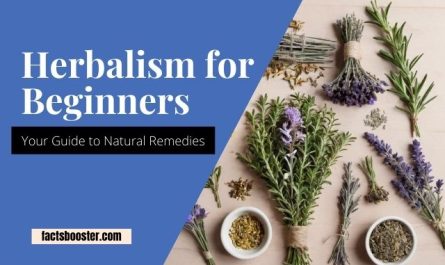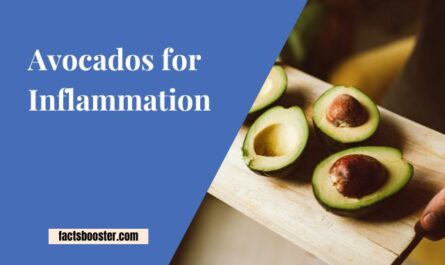Inflammation is your body’s natural response to injury or infection, a signal that something might be going wrong. However, when it becomes chronic, it can lead to serious health issues. That’s where nature steps in. Herbs for inflammation are not just traditional remedies of the past; they’re powerful tools backed by both history and science.
They offer a holistic alternative to fight inflammation without the side effects of conventional medicines. With an increasing shift toward natural health solutions, these herbs represent a key element of a larger, more holistic approach to wellness.
Key Takeaways:
- Herbs for Inflammation: Natural remedies can reduce inflammation effectively.
- Fight Inflammation Holistically: Incorporating herbs into your lifestyle can support overall health.
- Leaf for Inflammation: Certain herbs and leaves have potent anti-inflammatory properties.
The Power of Herbs in Fighting Inflammation
In the quest to fight inflammation and restore balance to your body, you’ve likely come across the time-honored tradition of using herbs for inflammation. These natural warriors, steeped in the wisdom of traditional medicine, are now being validated by modern research for their potent anti-inflammatory properties.
It’s a fascinating blend of history and science that brings us a catalogue of herbs capable of doing more than just seasoning our food. Incorporating these inflammation-fighting herbs into your diet or lifestyle isn’t just about managing discomfort—it’s a proactive step towards holistic health.
Whether it’s a leaf for inflammation you brew into a soothing tea or spices that reduce inflammation in your meals, each herb invites you to embrace a natural approach to well-being.
Top 12 Herbs for Inflammation

Each herb meticulously selected not only reduces inflammation but brings a treasure trove of additional health benefits. Bearing the potency to fight inflammation, these gifts from nature range from the vibrant turmeric, known for its curcumin magic, to the humble ginger, transcending its culinary roots.
1. Rosemary
- Rosemary contains rosmarinic acid, which has anti-inflammatory properties.
- It’s often used in cooking and can be brewed into tea to help reduce inflammation in the body.
2. Cinnamon
- Cinnamon contains compounds like cinnamaldehyde that possess anti-inflammatory effects.
- It can be added to various dishes or brewed into tea to aid in reducing inflammation.
3. Cayenne
- Cayenne pepper contains capsaicin, which is known for its anti-inflammatory properties.
- Incorporating cayenne into meals or using it topically as a cream can help alleviate inflammation.
4. Black Pepper
- Black pepper contains piperine, which has been shown to have anti-inflammatory effects.
- It’s commonly used as a seasoning in cooking and can be easily included in various dishes.
5. Green Tea
- Green tea is rich in polyphenols, particularly epigallocatechin gallate (EGCG), which has potent anti-inflammatory properties.
- Regular consumption of green tea can help reduce inflammation and improve overall health.
6. Chamomile
- Chamomile contains flavonoids like apigenin, which have anti-inflammatory effects.
- Brewing chamomile tea and drinking it regularly can help soothe inflammation and promote relaxation.
7. Cilantro
- Cilantro contains antioxidants and essential oils that possess anti-inflammatory properties.
- Adding fresh cilantro to dishes or using it in salads can contribute to reducing inflammation in the body.
8. Cardamom
- Cardamom contains compounds like cineole and limonene, which have anti-inflammatory effects.
- It’s often used as a spice in cooking and can be brewed into tea for its therapeutic benefits.
9. Boswellia
- Boswellia, also known as Indian frankincense, contains boswellic acids, which exhibit potent anti-inflammatory properties.
- Boswellia supplements or extracts are commonly used to reduce inflammation and manage conditions like arthritis.
10. White Willow
- White willow bark contains salicin, which is similar to aspirin and possesses anti-inflammatory effects.
- It can be consumed as a supplement or brewed into tea to alleviate inflammation and pain.
11. Cloves
- Cloves contain eugenol, a compound with anti-inflammatory and analgesic properties.
- Adding cloves to dishes or brewing them into tea can help reduce inflammation and provide pain relief.
12. Fenugreek
- Fenugreek contains compounds like saponins and flavonoids, which have anti-inflammatory effects.
- Fenugreek seeds can be added to dishes or brewed into tea to help reduce inflammation and improve digestion.
Read more:
Turmeric: The Golden Anti-inflammatory
Let’s dive into the world of turmeric, often hailed as the golden key to fighting inflammation. At the heart of turmeric’s power lies curcumin, a compound that’s not just a brilliant colorant but a mighty warrior against inflammation and oxidation.
Imagine this: you’re up against the chronic discomforts of inflammation, scouring through nature’s bounty for a solution. Then you discover curcumin — akin to finding a superhero in your spice rack.
Its ability to significantly reduce inflammation and combat oxidative stress makes it a cornerstone in the quest for a natural remedy. With turmeric, you’re not just adding flavor to your meals; you’re inviting an ancient healer to your table, turning each dish into a vibrant potion of wellness.
Ginger: More Than Just a Spice
Let’s turn our attention to a powerhouse herb that’s far more than a mere culinary additive – ginger. Hailed for its potent ability to reduce inflammation, ginger has cemented its place as a go-to remedy in the natural health arsenal.
Whether it’s the nagging pain of sore muscles or the discomfort of an achy stomach, ginger’s impressive anti-inflammatory properties come to the rescue, providing much-needed relief. But the benefits of this zesty root don’t stop there.
It’s also celebrated for its effectiveness in supporting digestion, making it a dual-threat against discomfort. Incorporating ginger into your diet isn’t just a flavor upgrade—it’s a strategic move in the holistic fight against inflammation and pain.
Personal Success Story: A Natural Journey to Reducing Inflammation
Imagine waking up every morning, your joints stiff and your body aching, every movement a reminder of the chronic inflammation you’ve been battling. That was me, before I embarked on a journey that transformed not just my health, but my entire outlook on life.
I started incorporating herbs for inflammation into my daily regimen, skeptical at first but desperate for a natural solution. Turmeric became more than just a spice in my kitchen; it was my golden ticket to relief, with its powerful anti-inflammatory properties.
Ginger, no longer just a flavor enhancer for my meals, became a staple in my teas and dishes, significantly reducing inflammation and pain. It wasn’t long before I noticed a dramatic shift.
My mornings no longer began with stiffness and pain. Through these lifestyle changes and the power of leaves known to fight inflammation, I found a way not just to live, but to thrive.
Incorporating Anti-inflammatory Herbs into Your Diet
Inviting herbs for inflammation into your daily regime doesn’t have to feel like a chore. In fact, it can be as simple and delightful as savoring a warm, soothing cup of tea. Start by making small yet impactful changes.
For breakfast, consider sprinkling cinnamon or turmeric on your oatmeal for a spicy kick that fights inflammation. If you’re more of a smoothie enthusiast, blend in some ginger or leafy greens to power up your morning with anti-inflammatory benefits.
As for your main meals, incorporating herbs like rosemary, basil, or thyme can transform a plain dish into a fragrant, anti-inflammatory masterpiece. Don’t forget about snacks and beverages.
Swapping out regular snacks with ones that include herbs that reduce inflammation, such as adding mint leaves to your water, not only refreshes you but combats inflammation at the same time.
Lastly, exploring supplements is a convenient way to ensure you’re getting these mighty herbs, especially on busier days.
Common Misconceptions About Natural Anti-inflammatories
Some skepticism often clouds their true potential. Let’s clear the air and debunk a few myths. Firstly, the belief that natural means ineffective couldn’t be farther from the truth.
Herbs like turmeric and ginger pack a powerful anti-inflammatory punch, backed by both traditional practices and modern science. Secondly, there’s the misconception that if it’s herbal, it must be slow-acting.
While these remedies may not always provide instant relief as some pharmaceuticals do, their benefits are more about long-term management and prevention. And lastly, the idea that natural solutions are a one-size-fits-all cure is misleading.
Just like any treatment, the effectiveness of herbs for inflammation varies among individuals. It’s about finding the right combination that works for you, under guidance, to ensure their efficacy and safety.
Beyond the Leaf: A Holistic Approach to Inflammation
So, you’ve learned about the mighty 12 herbs for inflammation and how they can help reduce inflammation naturally. But, let’s not stop at the leaf. Embracing a holistic approach to inflammation means going beyond and looking at the big picture of your health.
It’s about weaving these powerful herbs into a tapestry of lifestyle changes that altogether fight inflammation more effectively.
Imagine incorporating herbs for inflammation into a routine that also champions dietary changes. You swap out inflammatory foods with nutrient-rich alternatives that further empower your body’s natural defenses. But you don’t stop there.
You lace up those sneakers to introduce regular physical activity into your life—something as simple as a brisk walk or a full-on workout at the gym. Physical activity, after all, has been shown to significantly reduce inflammation.
Finally, don’t underestimate the power of stress management techniques. Life throws curveballs, but learning how not to let stress take the driver’s seat can remarkably minimize inflammation. From meditation and yoga to journaling and spending time in nature, there’s a plethora of ways to tackle stress head-on.
Remember, combatting inflammation isn’t just about what you take out but also what you bring into your life. By focusing on a holistic health strategy that includes dietary changes, regular physical activity, stress management, and the introduction of herbs that fight inflammation, you’re not just treating symptoms—you’re nurturing your health at the source.
Bottom Line
Embracing the power of herbs for inflammation opens up a world of natural healing. Whether it’s the soothing leaf that reduces inflammation, or a potent mix, these gifts of nature offer a holistic path to fighting inflammation. Remember, your journey to wellness starts with a step towards nature’s bounty. Let’s reclaim our health, together.


